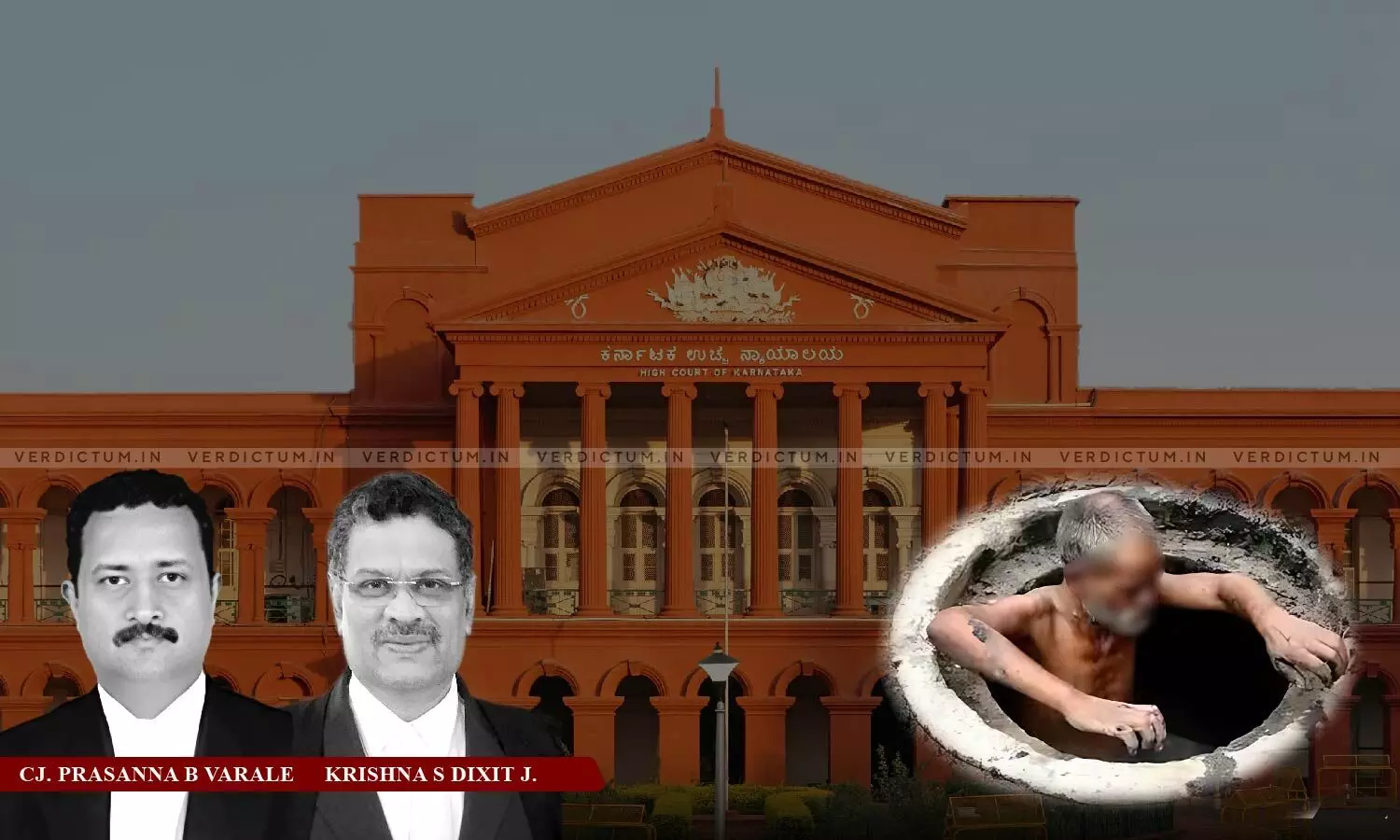
Despite Constitutional Milestones And Judicial Warnings, Manual Scavenging Continues: Karnataka HC Initiates Suo Motu PIL
 |
|The Karnataka High Court, acknowledging a distressing news article published in The New Indian Express newspaper, took suo motu cognizance of the persistent manual scavenging in the state despite legislations and judicial warnings about the same. The article, titled "Manual Scavenging Continues Despite Ban," highlighted the alarming persistence of manual scavenging practices in the state, despite legislative and judicial interventions aimed at eradicating this inhumane practice.
A Division Bench, of Chief Justice Prasanna B Varale and Justice Krishna S Dixit, designated Advocate Sridhar Prabhu as the amicus curiae. They instructed him to prepare a public interest litigation (PIL) to be submitted to the Registry. The matter is slated for a hearing on January 8.
The Court was deeply perturbed by the revelations in the news report, particularly the personal account of Appanna, a former manual scavenger from Bengaluru, who expressed shame and frustration at being identified by his caste rather than his current profession as a security guard. The Court said, “The news item certainly shocks our conscience and bewilders us.”
The article also featured remarks from Bezwada Wilson, a Ramon Magsaysay awardee and prominent activist against manual scavenging, who criticized the prevailing societal attitudes that perpetuate caste-based discrimination and exploitation. Wilson emphasized that such practices, including compelling students to clean school toilets, constitute criminal offenses.
Despite the enactment of the Manual Scavenging Act in 2013 and subsequent Supreme Court orders prohibiting manual scavenging in 2014, the Court noted a glaring lack of governmental action and public awareness campaigns. This indifference was evident from the fact that while even residents of remote villages are familiar with the Swachh Bharat Abhiyan, there remains widespread ignorance about the Manual Scavenging Act.
Drawing inspiration from the teachings of Jagajyothi Basaweshwara, a renowned 12th-century social reformer, the Court underscored the fundamental equality of all individuals, irrespective of their caste or social status. The Court reproduced a stanza of a Vachana coined by him:
"The land is the same for both;
God's temple and the pariah colony;
The water is the same for both;
The worship and the ablution;
The clan is the same for those
who know themselves;
The reward is the same for those
who are released;
By means of the six fold mystic way;
The goal is the same for those
who know Thee,
Lord Koodala Sangama."
The Court lamented that despite the passage of centuries and the establishment of a democratic constitution, deeply entrenched social prejudices continue to perpetuate such dehumanizing practices. The Court added, “The Parliament had enacted the Statute and the Rules have been promulgated thereunder; the Apex Court has time and again emphatically warned against the continuation of manual scavenging and despite all this, the pernicious practice which is derogatory to the mankind, still persists. This Court being a constitutional entity cannot be a mute spectator to this.”
Consequently, the Court, recognizing its constitutional obligation to uphold justice and equality, decided to treat the news report as a suo motu Public Interest Litigation (PIL). The Court directed the Registry to initiate the necessary proceedings and compile the relevant documents.
Click here to read/download Order